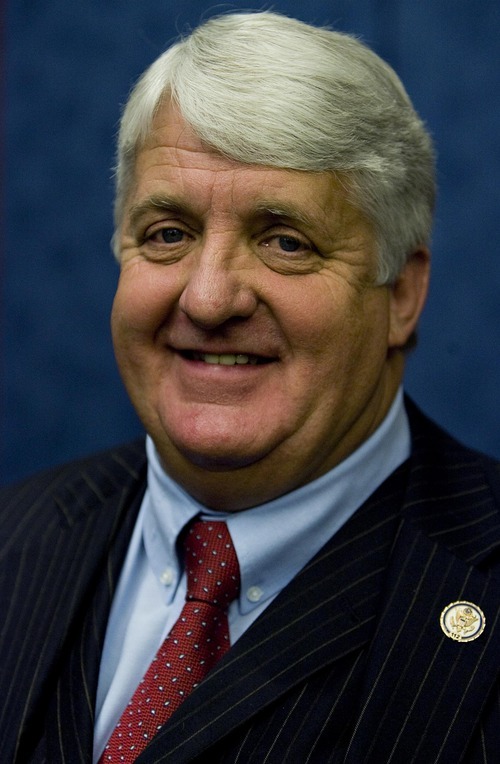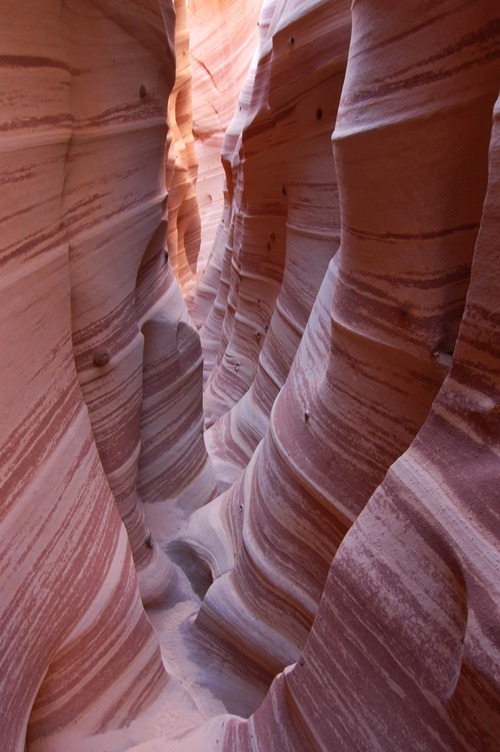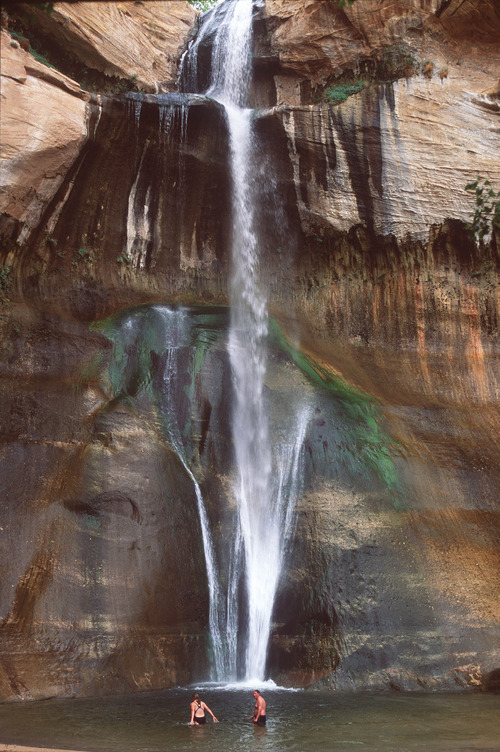This is an archived article that was published on sltrib.com in 2011, and information in the article may be outdated. It is provided only for personal research purposes and may not be reprinted.
Washington • Still smarting from the 1996 creation of the Grand Staircase-Escalante National Monument abutting his hometown, Escalante Mayor Jerry Taylor implored Congress on Tuesday to pass legislation that would prohibit the White House from naming any more such monuments in Utah.
"I wish I could say it was a great economic boon for our community, but I cannot," Taylor testified before the House Natural Resources subcommittee on public lands and national forests.
The mayor said the monument's creation, a surprise announcement in 1996 by President Bill Clinton, has locked up rich veins of coal as well as natural gas and oil that could have meant jobs and better lives for residents of the rural community.
And he disputed a fellow panelist's study saying that communities with such monuments have seen economic growth.
"I don't see where the monument has brought in any jobs for our community," Taylor said.
Steve Roberts, owner of Escalante Outfitters, is in sharp disagreement with the mayor, saying that he moved to the town in 2003 because of the monument and his business has pretty consistently grown by 20 percent every year.
"It's just grown to be a very important part of the economy, and it's all because more and more people are discovering Grand Staircase-Escalante," Roberts said.
Roberts, who also runs a pizza shop and offers guided fly fishing and educational tours, questions whether oil and gas drilling jobs would have materialized had the monument designation not gone through and notes that tourism is becoming the community's lifeblood.
Rep. Rob Bishop, a Utah Republican who is chairman of the subcommittee, is pushing a measure that would take away the president's ability to name any monuments in Utah without congressional approval; several fellow House members have proposed legislation to do the same with their own states.
"We should never allow the administration to avoid Congress, especially not allow them to use a legislative function to avoid Congress," Bishop said, taking issue with the Antiquities Act of 1906, which he believes usurps the legislative branch.
But Ray Rasker, executive director of the nonprofit research group Headwaters Economics, said that in a study of 17 communities with national monument designations during the past two decades, data showed the local economies grew.
"In every instance, there was greater employment, greater personal income and greater per capita income after the creation of the monument," Rasker said. "In no case did we find that the creation of a national monument led to an economic downturn."
In Utah, Headwaters found that employment in Kane and Garfield counties grew 38 percent from 1996 to 2008 — four times faster than the population grew in those counties surrounding the monument. Real per capita income grew by 30 percent.
Moreover, the Interior Department said in a statement submitted to the committee that President Barack Obama opposes the bills being considered because they would take away a crucial tool in protecting treasured lands.
"The Antiquities Act has a proven track record of protecting — at critical moments — especially sensitive federal lands and the unique cultural and natural resources they possess," the department said in an unsigned statement. "These monuments have become universally revered symbols of America's beauty and legacy."
Bishop has raised the issue about new monuments since he obtained part of an Interior Department memorandum suggesting some potential sites; the department has stressed it was a preliminary talking-point list and any process to create a monument would be done in consultation with local officials and include community support.
Brandon Loomis contributed to this report.







